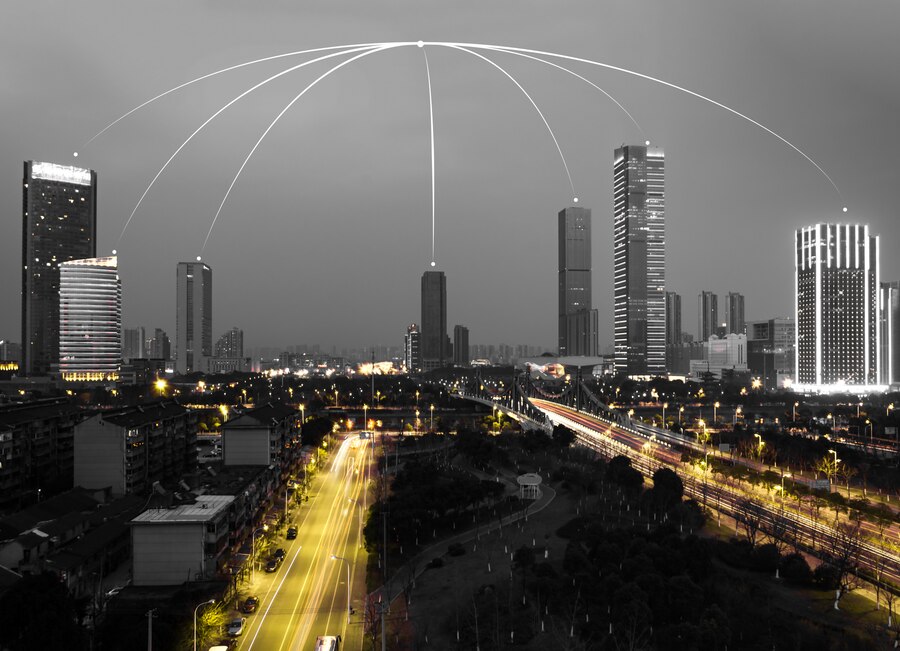The world is becoming increasingly urbanized, with more and more people moving to cities in search of better opportunities. As cities grow, they face numerous challenges, such as traffic congestion, pollution, and strain on resources. To address these challenges, cities are turning to technology to create smarter, more sustainable, and more livable urban environments. In this article, we'll explore the concept of smart cities and urban technology solutions.
What is a Smart City?
A smart city is a city that uses technology and data analytics to improve the quality of life for its citizens. This can include everything from intelligent transportation systems to smart energy grids, and from public safety initiatives to waste management solutions. The goal of a smart city is to create a more efficient, sustainable, and livable urban environment.
Urban Technology Solutions
There are many urban technology solutions that cities can use to become smarter. Some examples include:
1. Intelligent Transportation Systems: These systems use sensors, cameras, and other technologies to manage traffic flow, reduce congestion, and improve safety.
2. Smart Energy Grids: These grids use advanced technologies, such as smart meters and renewable energy sources, to reduce energy consumption and improve efficiency.
3. Public Safety Initiatives: These initiatives use technologies, such as surveillance cameras and emergency response systems, to improve public safety and reduce crime.
4. Waste Management Solutions: These solutions use technologies, such as sensors and data analytics, to optimize waste collection and reduce waste disposal costs.
Benefits of Smart Cities
The benefits of smart cities are numerous. Some of the most significant advantages include:
1. Improved Quality of Life: Smart cities can improve the quality of life for citizens by providing better services, reducing pollution, and improving safety.
2. Increased Efficiency: Smart cities can increase efficiency by optimizing resources, reducing waste, and improving productivity.
3. Economic Growth: Smart cities can drive economic growth by attracting businesses, creating jobs, and improving infrastructure.
4. Sustainability: Smart cities can reduce their environmental impact by using renewable energy sources, reducing waste, and improving transportation systems.
Challenges of Smart Cities
While smart cities offer many benefits, there are also challenges to consider. Some of the most significant challenges include:
1. Data Management: Smart cities generate vast amounts of data, which can be difficult to manage and analyze.
2. Cybersecurity: Smart cities are vulnerable to cyber attacks, which can compromise public safety and security.
3. Equity and Access: Smart cities must ensure that all citizens have access to the benefits of technology, regardless of income or social status.
4. Infrastructure: Smart cities require significant investment in infrastructure, including sensors, cameras, and other technologies.
The Future of Smart Cities
The future of smart cities is exciting and uncertain. As technology continues to evolve, we can expect to see new innovations and solutions that will shape the future of urban living. Some potential trends to watch include:
1. Artificial Intelligence: The use of artificial intelligence to analyze data and make decisions in smart cities.
2. Internet of Things: The increasing use of IoT devices and sensors to collect data and improve services.
3. Sustainable Energy: The use of renewable energy sources and energy-efficient technologies to reduce the environmental impact of cities.
4. Citizen Engagement: The use of technology to engage citizens and improve participation in urban planning and decision-making.
Conclusion
Smart cities and urban technology solutions have the potential to transform the way we live and work in cities. By leveraging technology and data analytics, cities can improve the quality of life for citizens, increase efficiency, and drive economic growth. While there are challenges to consider, the benefits of smart cities are numerous, and the future of urban living looks bright.
FAQs
What is a smart city?
A smart city is a city that uses technology and data analytics to improve the quality of life for its citizens.
What are some examples of urban technology solutions?
Examples of urban technology solutions include intelligent transportation systems, smart energy grids, public safety initiatives, and waste management solutions.
What are the benefits of smart cities?
The benefits of smart cities include improved quality of life, increased efficiency, economic growth, and sustainability.
What are the challenges of smart cities?
The challenges of smart cities include data management, cybersecurity, equity and access, and infrastructure.
What is the future of smart cities?
The future of smart cities is exciting and uncertain, with potential trends including artificial intelligence, Internet of Things, sustainable energy, and citizen engagement.






